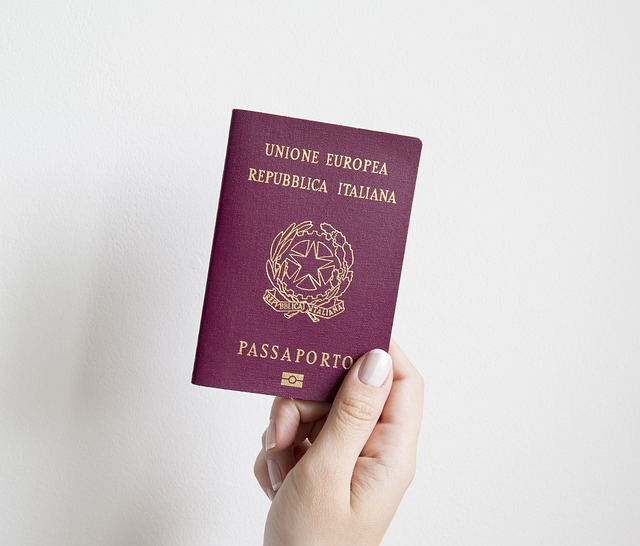Corporate travel security is a vital yet often overlooked aspect of international business trips. Organizations face unique risks abroad, requiring comprehensive risk assessment tools that consider political instability, crime rates, healthcare concerns, and emergency preparedness. Key measures include employee training, destination analysis, monitoring local news, assessing work sensitivity, and implementing strategies like on-site security, response plans, and tailored insurance. Prioritizing these steps ensures safer global corporate travel experiences.
As businesses expand globally, ensuring the safety of international business trips is paramount. This article guides corporations on navigating the complex landscape of corporate travel security through meticulous risk assessment. We explore critical aspects such as understanding unique destination-specific threats, conducting thorough assessments, and implementing strategies to mitigate risks. By adopting these practices, organizations can protect their assets and employees while fostering seamless international business operations.
Understanding Corporate Travel Security Risks
Corporate travel security is a critical aspect often overlooked when planning international business trips. With employees traveling to diverse destinations, organizations face unique challenges in ensuring their safety and security. Risk assessment for corporate travel involves a comprehensive evaluation of potential hazards, including political instability, crime rates, healthcare concerns, and emergency preparedness. By understanding these risks, businesses can implement tailored strategies to protect their employees, assets, and intellectual property abroad.
One key step is conducting thorough destination analysis, where each country’s security landscape is scrutinized. This includes monitoring local news, government advisories, and travel warnings. Additionally, assessing the company’s own risk exposure, such as the sensitivity of the work being done or the value of equipment carried, is essential. Effective corporate travel security measures can range from simple training programs for employees to more complex strategies like on-site security personnel, emergency response plans, and insurance coverage tailored to international business needs.
Identifying Potential Threats Abroad
When planning international business trips, understanding and mitigating potential risks is paramount for ensuring safe corporate travel security. Threats in foreign destinations can vary widely, from political instability to criminal activities, natural disasters, or health concerns. For instance, regions experiencing civil unrest may pose significant dangers, requiring travelers to stay informed about local conditions and follow specific safety protocols. Similarly, areas prone to natural calamities like earthquakes or hurricanes necessitate advance planning for emergency situations.
Effective risk assessment involves researching and analyzing the destination’s political climate, crime rates, healthcare infrastructure, and environmental factors. Companies should provide comprehensive training and guidelines to their employees, covering local customs, language barriers, and any cultural sensitivities that could impact safety. Regular updates on security advisories and travel warnings from official sources are essential to stay ahead of emerging risks, ensuring a smoother and safer corporate travel experience abroad.
Conducting Comprehensive Destination Assessments
Comprehensive destination assessments are an indispensable tool for organizations prioritizing corporate travel security. This involves a meticulous review of various factors that could impact safety and security at potential international locations. From political stability to local crime patterns, infrastructure quality, and healthcare accessibility, every aspect is scrutinized. By analyzing these elements, businesses can make informed decisions about high-risk areas and implement tailored strategies to mitigate potential threats.
Such assessments go beyond surface-level observations, delving into the intricate web of regional dynamics that may affect travelers’ safety. They consider local laws and regulations, cultural norms, and historical context, providing a holistic understanding of each destination’s unique challenges and opportunities. This proactive approach ensures corporate travel security, minimizes risks, and ultimately enhances the overall travel experience for employees sent to international assignments.
Mitigating Risks for Safe International Business Trips
When planning international business trips, mitigating risks is paramount for ensuring safe travels. Companies should invest in comprehensive risk assessment tools that factor in political stability, crime rates, and health hazards specific to each destination. Employing a robust corporate travel security strategy involves educating employees on potential dangers, establishing clear communication channels, and implementing safety protocols.
Regular updates on local conditions, emergency contacts readily available, and the use of secure transportation and accommodation options are key measures. Additionally, insuring against trip cancellations, medical emergencies, and other unforeseen events can significantly mitigate financial losses and ensure peace of mind during international business travels.
When planning international business trips, a thorough understanding of corporate travel security risks is paramount. By identifying potential threats abroad and conducting comprehensive destination assessments, companies can effectively mitigate risks. Implementing robust safety measures ensures that employees can navigate foreign landscapes with confidence, fostering seamless and secure global operations. This proactive approach to corporate travel security enables businesses to thrive in an ever-connected world.
